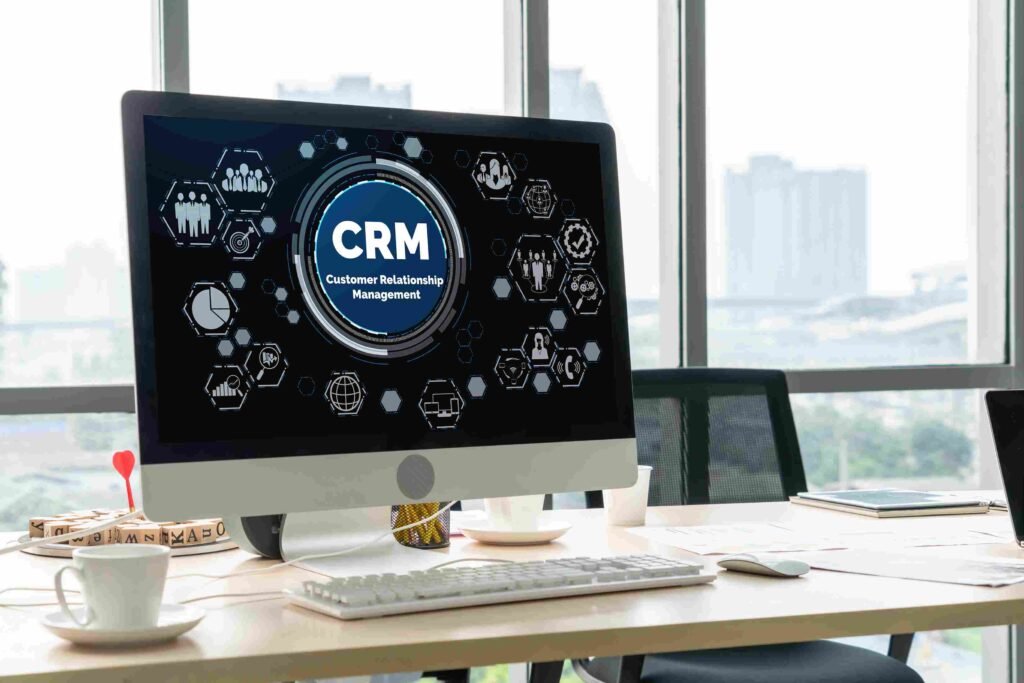CRM : Benefits and Challenges
The Benefits and Challenges of CRM Softwares


Benefits of CRM Software
1. Improved Customer Relationships
A CRM system aids in the achievement of the goal of understanding a client by giving a clear and elaborate view of the client. This may result to more appropriate and specific message delivery.
2. Enhanced Communication
With the help of CRMs, there is an improved way to communicate with the customers via e-mail, social networks, or phone calls. It also guarantees that all the communications are recorded and available to the involved team members.
3. Increased Sales
Thus, through the classification and planning of sales activities, CRMs can assist sales departments in prioritizing leads, improving pipeline control, and increasing the speed of deals’ closure.
4. Efficient Customer Service
CRMs contain features that deal with incoming customer queries, complaints, and support tickets, tracking the time taken to address them.
5. Data Centralization and Accessibility
All customers’ information are stored in one place and can thus be retrieved easily by anyone who has the right to access them. This minimizes the creation of data silos and ensures that everyone has up-to-date information.
6. Automated Tasks and Processes
Some of the activities that can be automated in many CRM systems include email marketing, lead nurturing, follow-up reminders among others, this is time-saving and reduces errors.
7. Better Data Analytics and Reporting
CRMs provide robust analytics and reporting tools, allowing businesses to gain insights into customer behavior, sales trends, and campaign effectiveness. This data can inform better decision-making and strategy development.
8. Improved Collaboration:
Team members can collaborate more effectively with shared access to customer information and communication histories, leading to better coordination and customer service.
9. Enhanced Marketing Efforts
CRMs can segment customers based on various criteria, enabling more targeted and effective marketing campaigns. This leads to better engagement and conversion rates.
10. Scalability
As businesses grow, CRM systems can scale to accommodate more customers, data, and processes without significant changes to the existing infrastructure
11. Increased Efficiency
By streamlining processes and providing quick access to information, CRMs increase overall operational efficiency, allowing employees to focus on higher-value tasks.
12. Customer Retention and Loyalty
By understanding customer needs and providing timely support and personalized experiences, CRMs help businesses build stronger relationships and increase customer loyalty and retention.
13. Cost Savings
While there is an initial investment in implementing a CRM, the efficiencies gained can lead to significant cost savings over time, especially by reducing the need for manual processes and improving customer retention.
14. Regulatory Compliance
Many CRM systems offer features that help businesses comply with data protection regulations, such as GDPR, by managing customer data securely and transparently.
Challenges of CRM Software
A number of challenges are associated with implementing Customer Relationship Management (CRM) systems. Here are some of the key challenges:


1. User Adoption
- Employees may resist changing their routines or lack sufficient training, leading to underutilization of the CRM system.
2. Data Quality
- Ensuring data integrity is critical; incomplete or duplicate entries can undermine the CRM’s effectiveness.
3. Integration Complexity
- Integrating the CRM with existing systems can be technically challenging and costly, potentially resulting in data silos.
4. Customization Balance
- Too much customization can complicate the system, while too little may not meet specific business needs.
5. Cost and Scalability
- Managing the cost of the CRM system and ensuring it scales with business growth are significant considerations.
6. User Experience
- The system must be user-friendly to encourage widespread adoption and effective use.
7. Security
- Protecting sensitive customer data within the CRM system is essential.
8. Vendor Dependence
- Relying on a CRM vendor can create challenges related to support and long-term commitment.
CRM software drives better customer relationships and smoother workflows. But it comes with its own set of challenges, from setup to customization. Want to simplify the decision? Check out our Top CRM Software Comparison for a smart guide to the best solutions available.
Most Recent Posts
- All Post
- CRM
- E-Commerce
- HRMS
- LMS
- POS


